We all fell in love with Wordle this year, and by “we” I mean all of us nerds who have five minutes to kill over coffee each morning and choose to do so with a word game. I’ve personally spent most of the year perfecting my Wordle strategy, and finding alternative games to occupy me once I’ve completed that day’s puzzle.
In addition to standard Wordle, the past 12 months blessed us with dozens of other guessing games that borrowed one or more of Wordle’s features — five-letter solutions, or yellow and green squares, or sometimes just the concept of guessing and getting hints. Here are 14 of the best.
Waffle
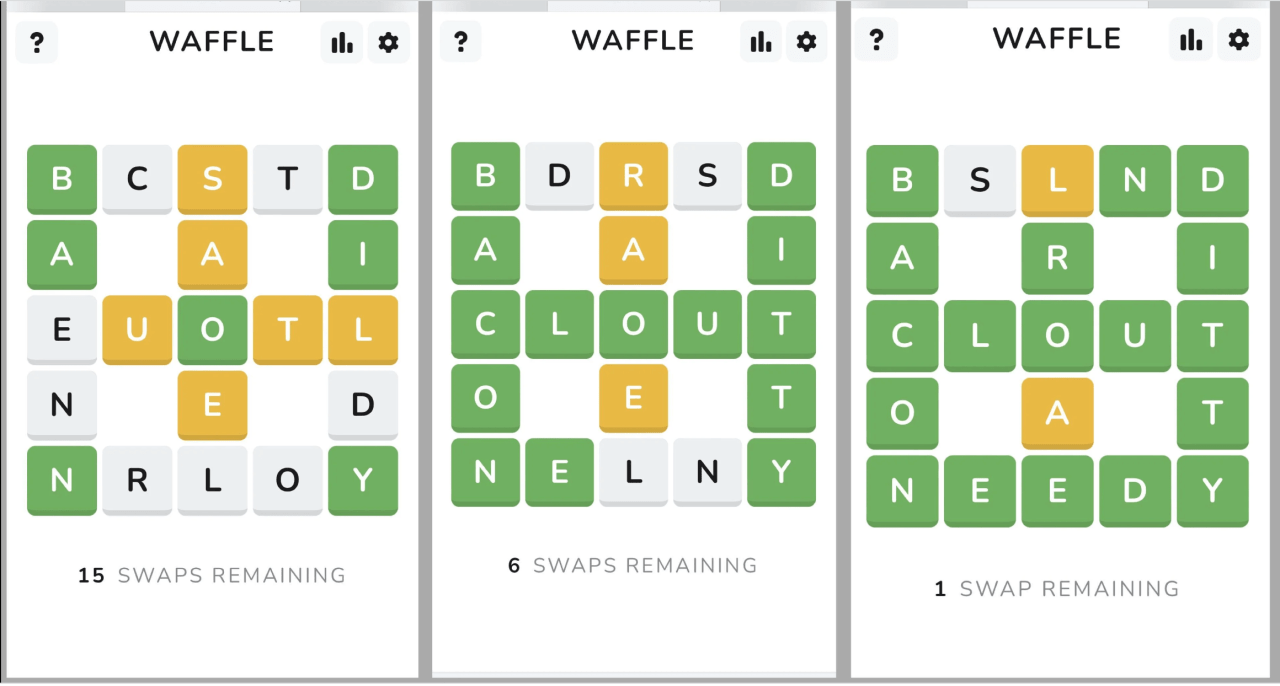
Let’s start out the list with a cute and friendly game. Waffle puts six different five-letter words in a grid, and you solve it simply by moving the squares around. It’s tricky to get the job done in the given number of swaps, but you’re never going to be too perplexed — all the letters you need are right in front of you.
Flagle
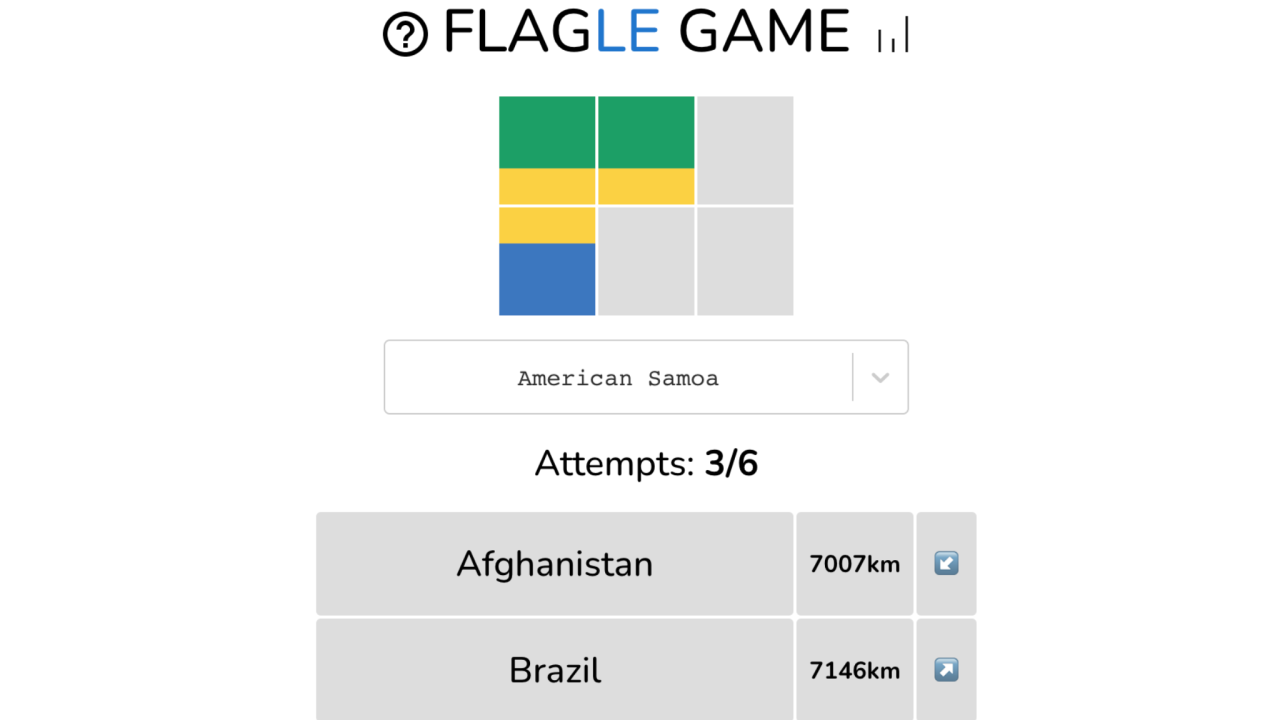
I was torn on whether to award the geographical spot on the list to Flagle, which uses country flags, or Worldle, which gives you the outline of the country. I’m going with Flagle because there are two ways to win: In addition to narrowing down the location of the country, you can also reveal tiles of the country’s flag.
Hurdle
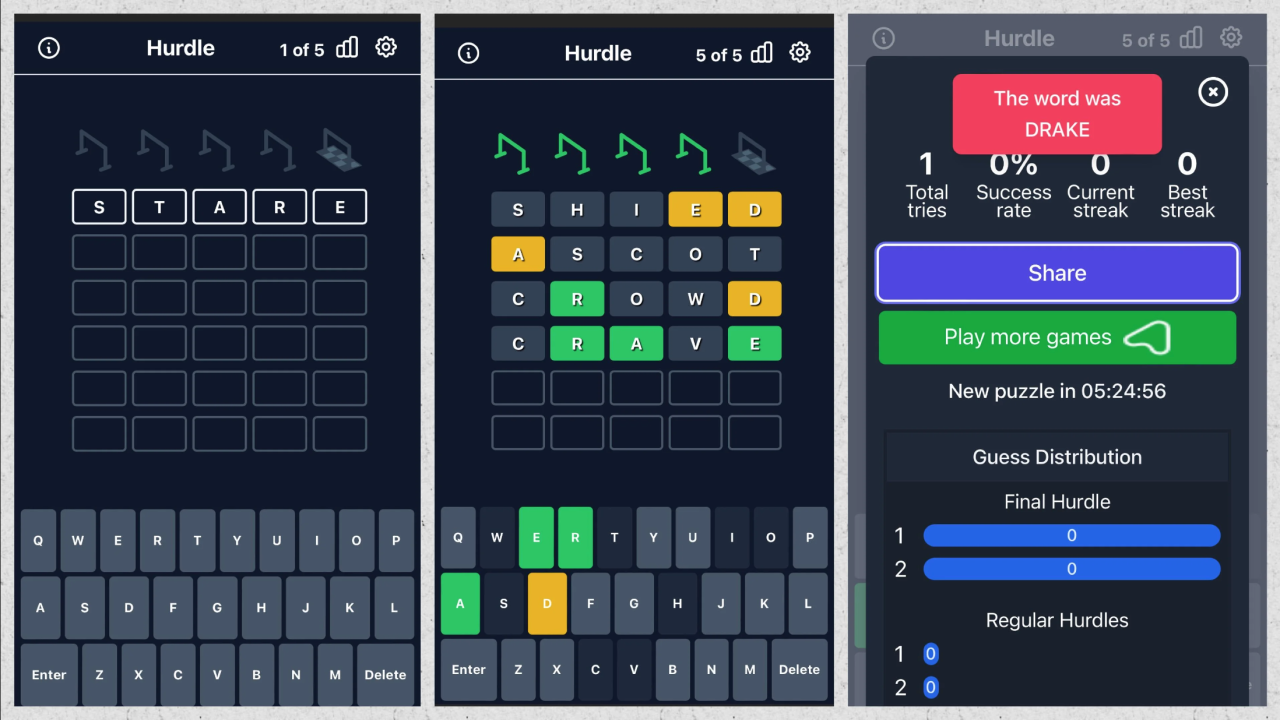
This is probably the last friendly, straightforward game you’ll see on this list, so enjoy it while it lasts. Hurdle gives you five Wordle-style puzzles each day. You have to solve each to get the next, and then the fifth puzzle gets pre-filled with the four previous solutions as guesses, leaving you just two chances to win the final round.
Absurdle
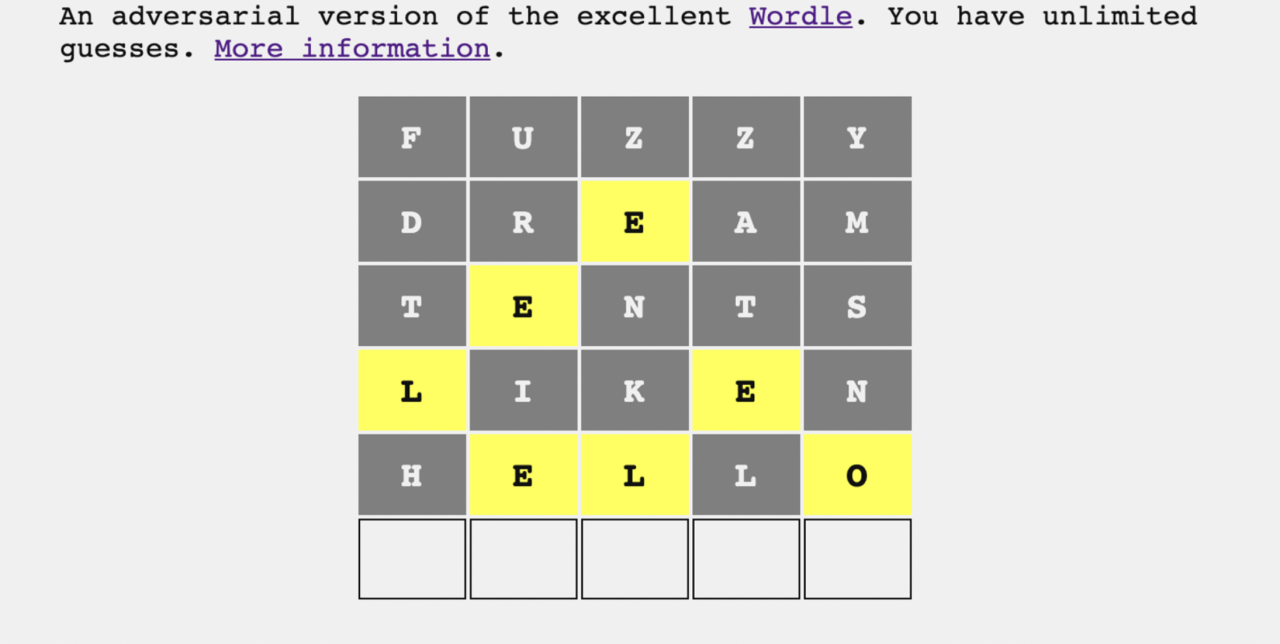
Absurdle gets its name because its premise is entirely absurd — and man, does it follow through. The secret word you’re guessing changes to evade your guesses. Its one nod to sportsmanship is that it will abide by its previous hints — so if it tells you that the word contains an R as the first letter, the solution will have an R, but everything else is subject to change. Succeeding at this game means backing the algorithm into a corner until it only has one option left; only then will it admit you won.
Heardle
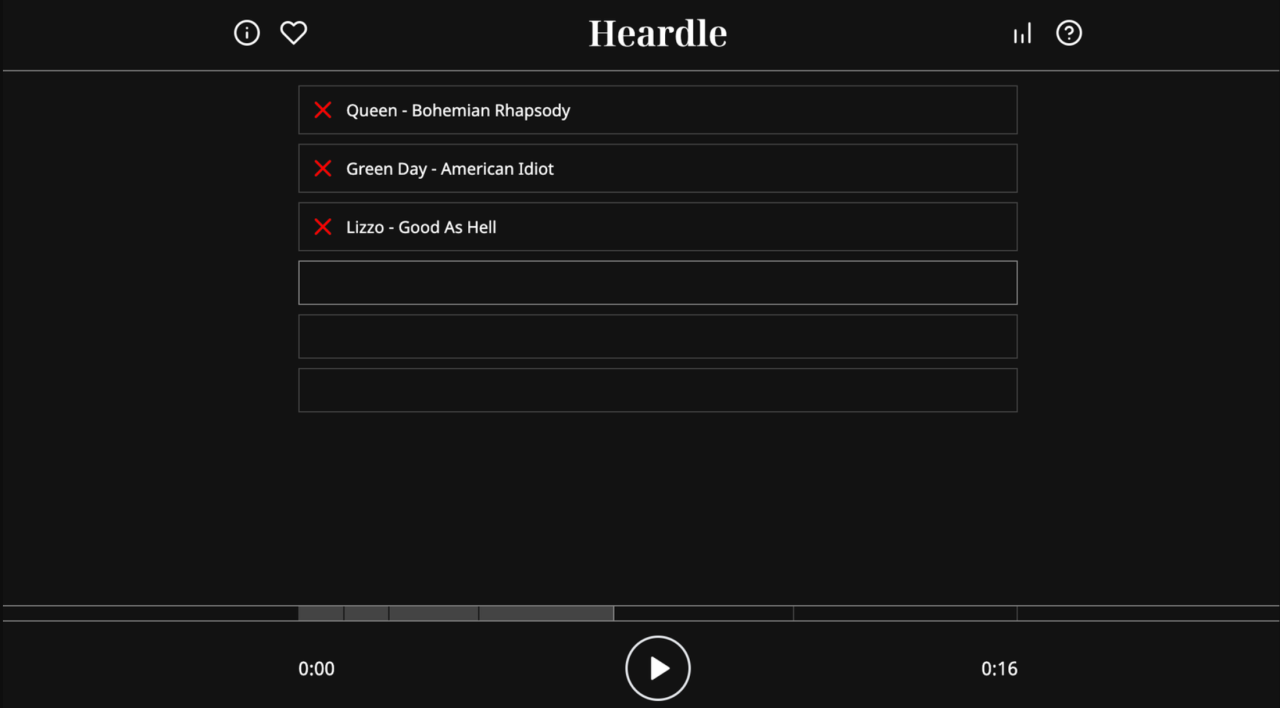
Heardle is the modern version of Name That Tune!, a game show where participants had to identify a song based on just the first few notes. The songs in Heardle are taken from popular Spotify streams, so it’s also a good litmus test for your own pop culture relevance.
Squabble
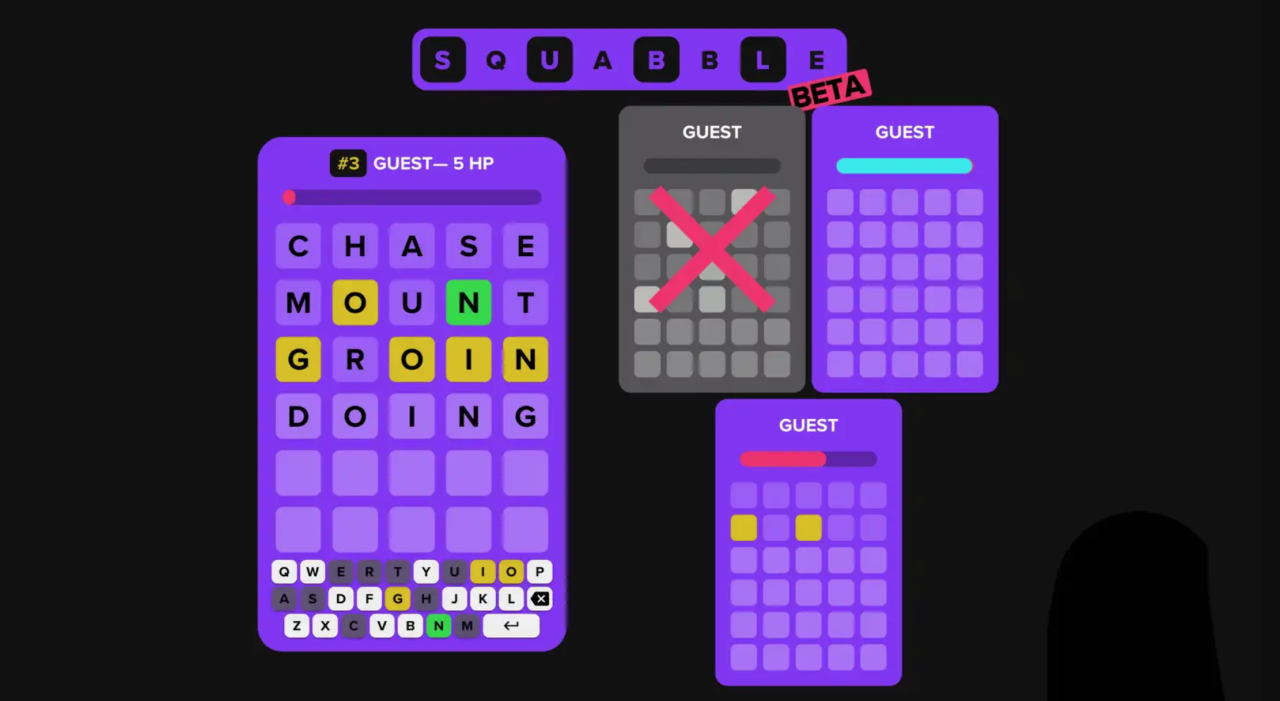
In Squabble, we have our first competitive Wordle. (We’ll meet another in a minute.) If you think you’re good at guessing words, you now get the chance to prove it against friends or strangers in real time. Guessing wrong subtracts health from you little metre; guessing correctly refills it. The game continues, going to multiple words if needed, until all but one player have been eliminated.
Mordle
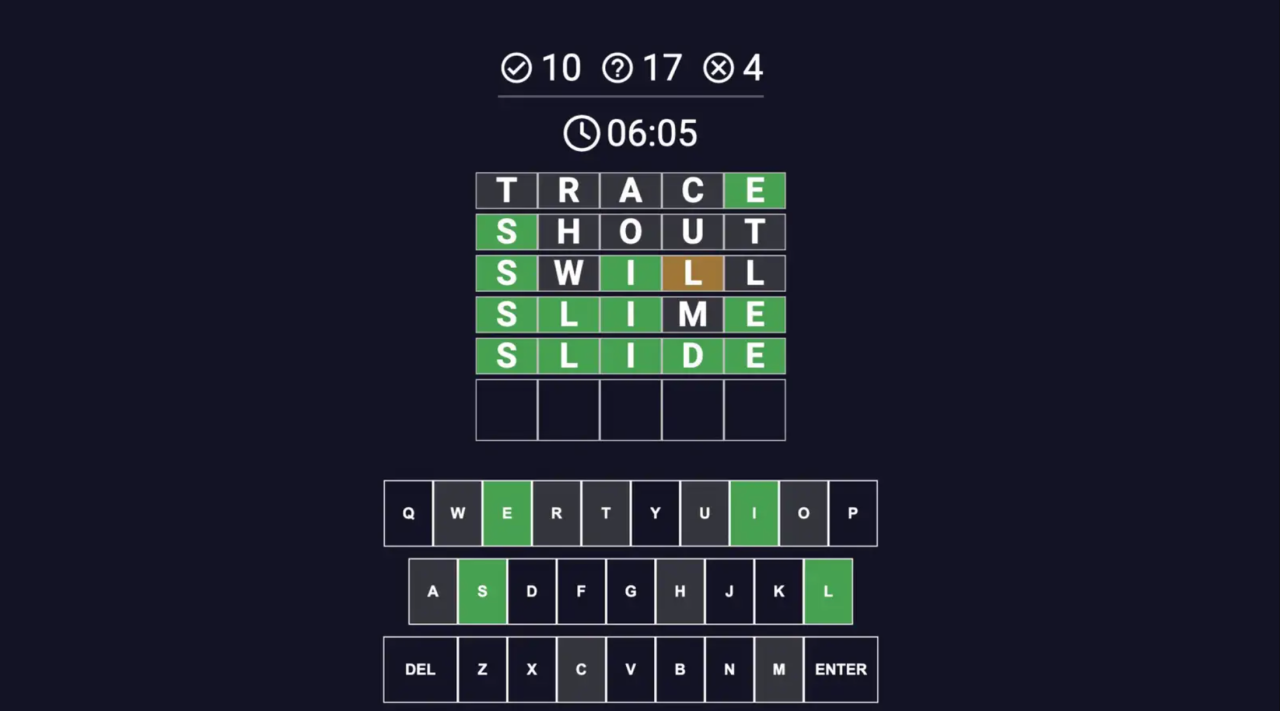
If you like Squabble, try the massively multiplayer Mordle. Games can have up to 100 players, but gameplay is simpler because you don’t have to watch their game boards or battle them directly. Just attempt to solve the puzzle yourself, as fast as you can, and find out how many people got to the correct solution before or after you.
Quordle and the other multi-wordles
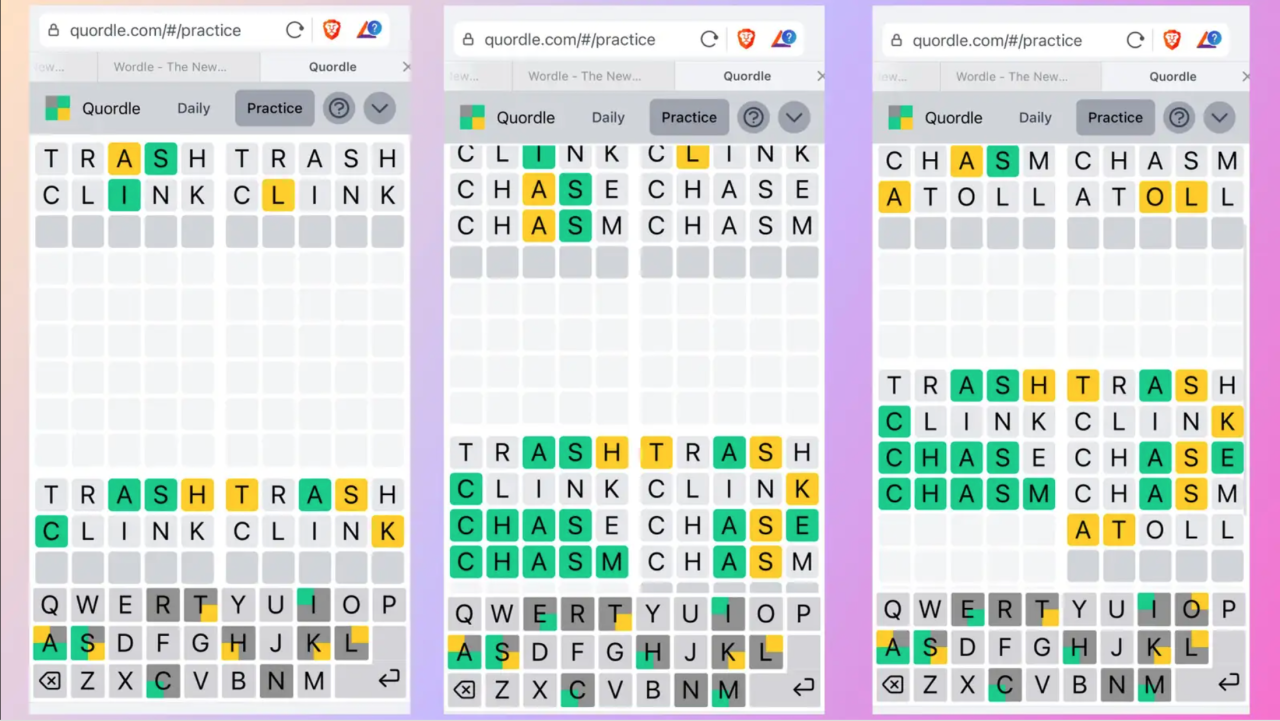
When Dordle (the double Wordle) first came on the scene, it seemed nightmarish; you’re supposed to solve two Wordles with the same guesses?! But with practice, it’s not hard at all. And so it escalated from there. Quordle is the sweet spot, in my opinion; four is the perfect number of puzzles to solve at once. But Octordle is also fun, and so are Sedecordle and Duotrigordle. Multi-Wordles appear daunting at first, but with so many grids, almost any guess is going to give you a useful hint somewhere.
Antiwordle
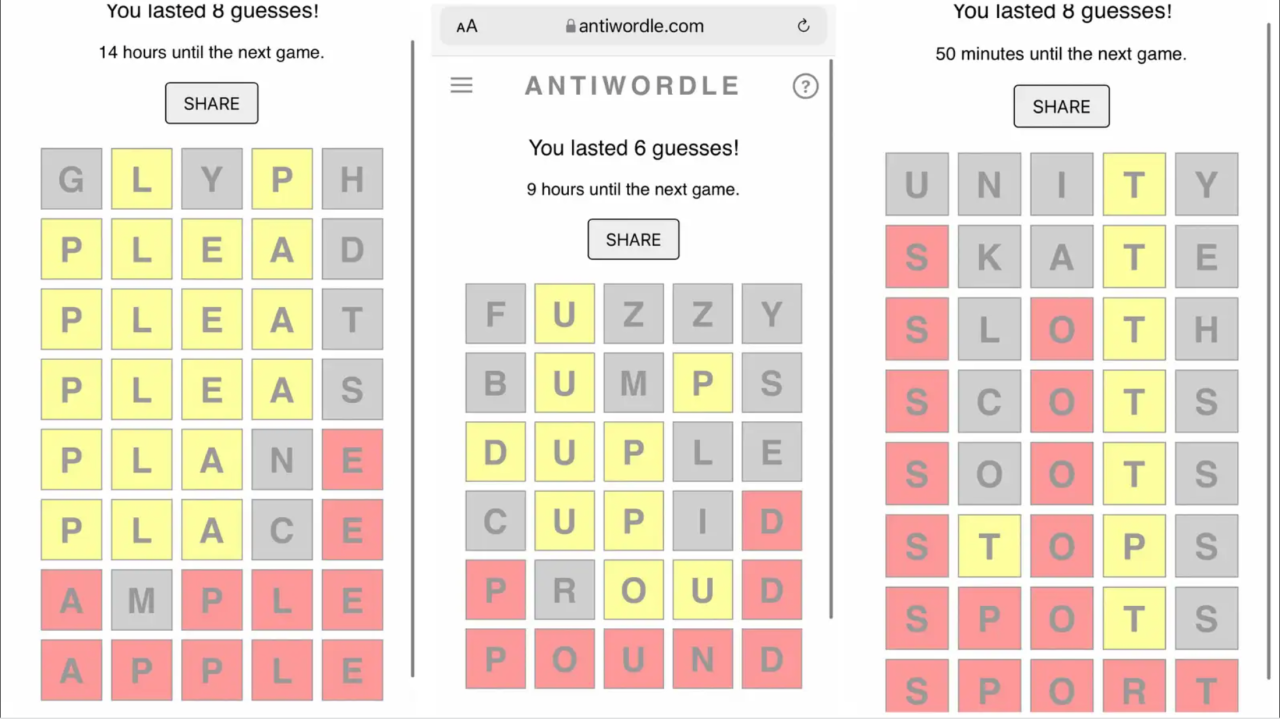
Antiwordle is probably the most hellish of all the games on this list, and that’s saying something. The rules are the same as the rules for regular Wordle played on hard mode (where you’re required to reuse correct letter guesses). But the whole idea is that you’re trying to not guess the word. Once you get it right, you lose.
Semantle
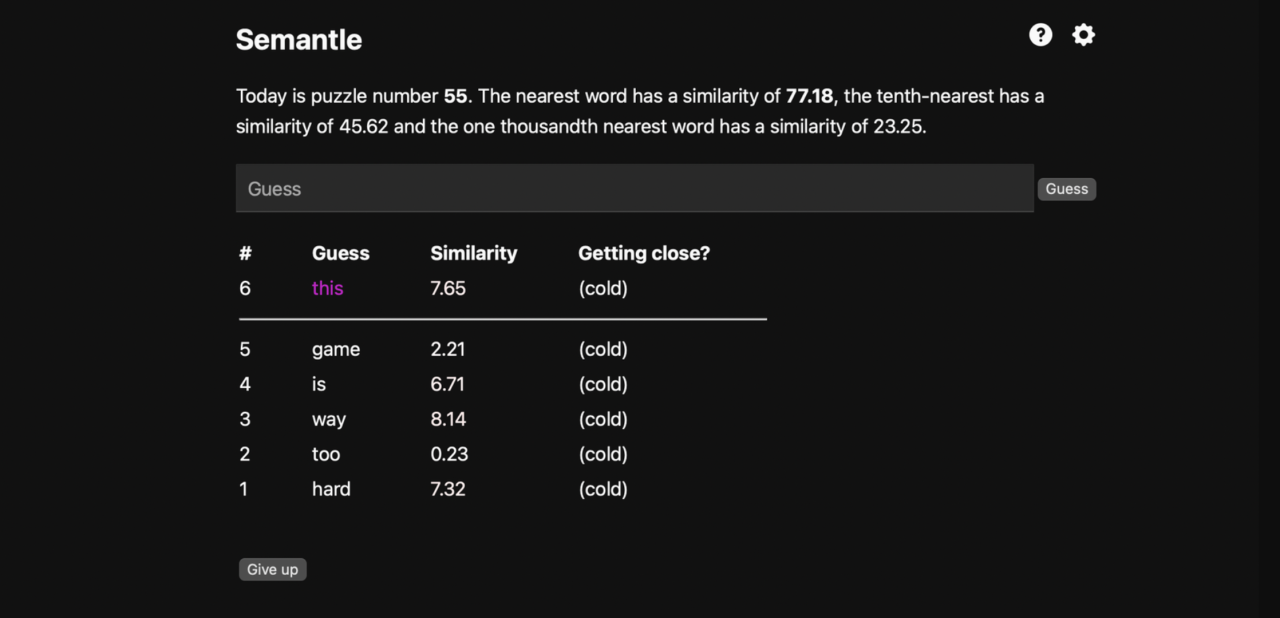
Word games are, for the most part, games for good spellers. If you can recognise the patterns letters commonly appear in, you’re at an advantage. So if you’ve ever wondered why word games don’t ask you to guess the approximate meaning of a word, Semantle is for you. It’s tough to even begin narrowing it down, but once you do, just aim for words with similar meanings to arrive at the answer.
WordAll
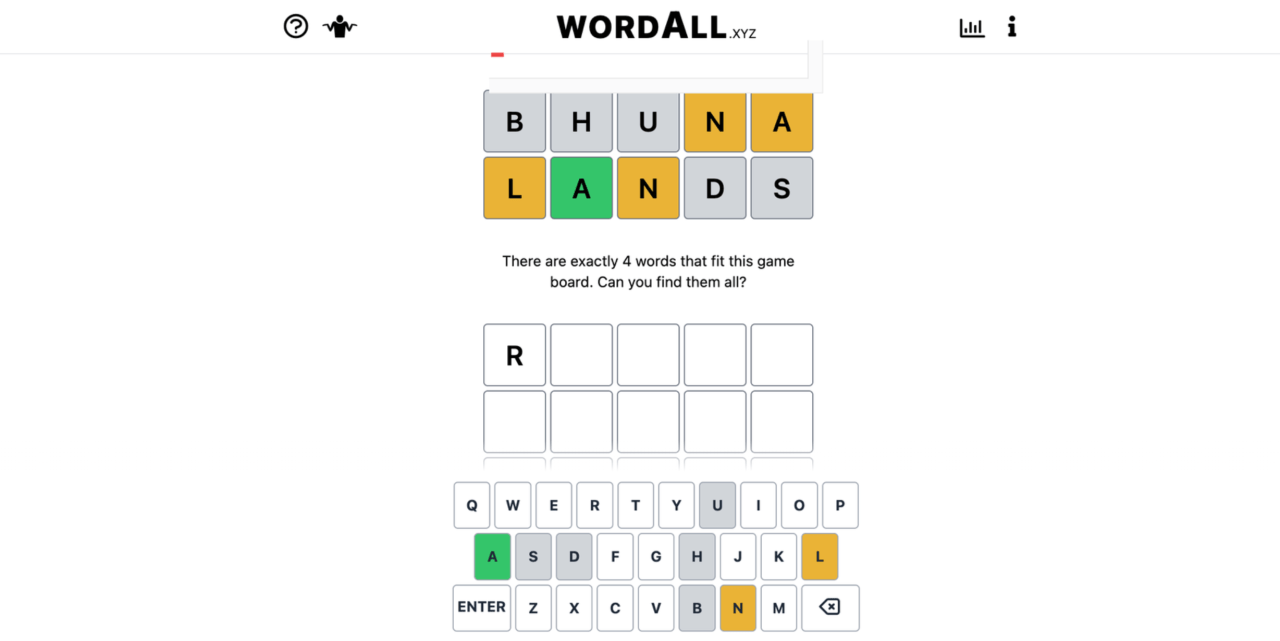
Any time you get your green and yellow squares in response to a guess, what the game is really doing is defining and redefining a pool of words that the solution must be in. (All the words that have an E in the second position and a T in them somewhere other than the third, let’s say.) WordAll gives you a half-played game, pauses it there, and asks you to name all the words in that pool. It’s a fun brain exercise, and will probably make you a more strategic Wordle player.
Artle
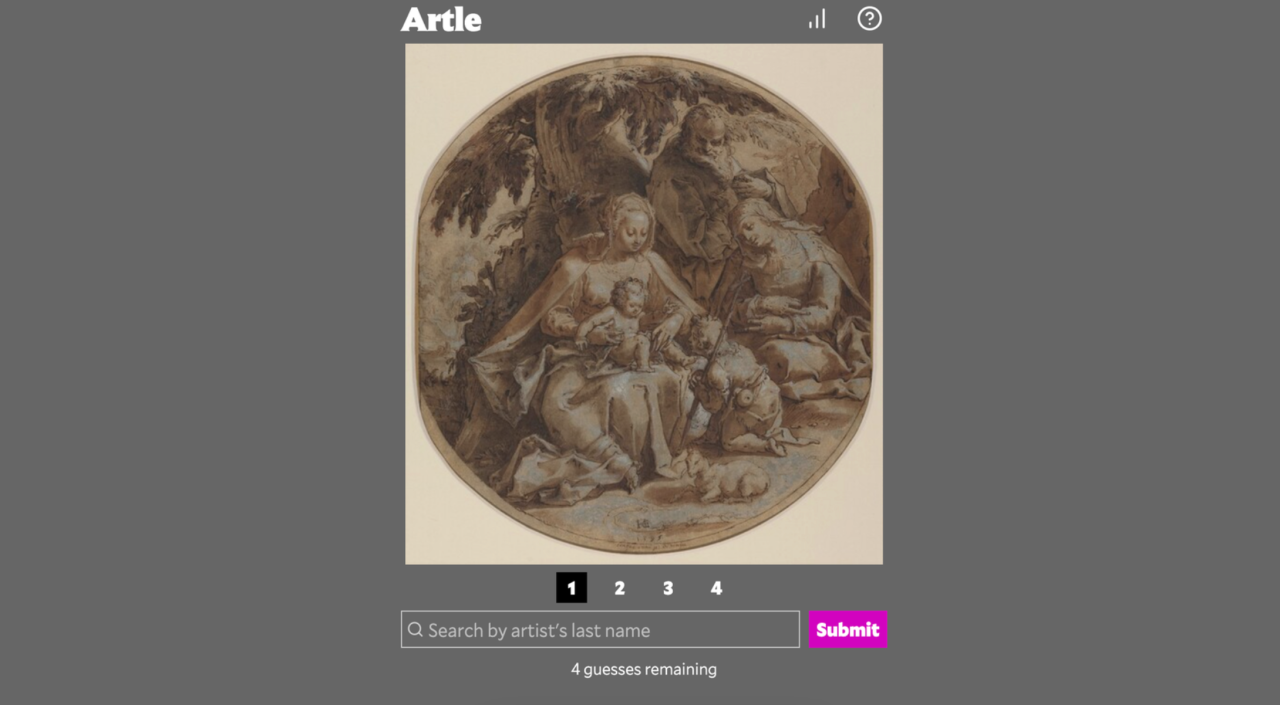
We’ll back away from words for this one, an art-themed game that shows you snippets of works, all created by the same artist. It’s called Artle, and it will probably teach you things you didn’t know about your favourite artists — and help you discover new ones.
Squardle
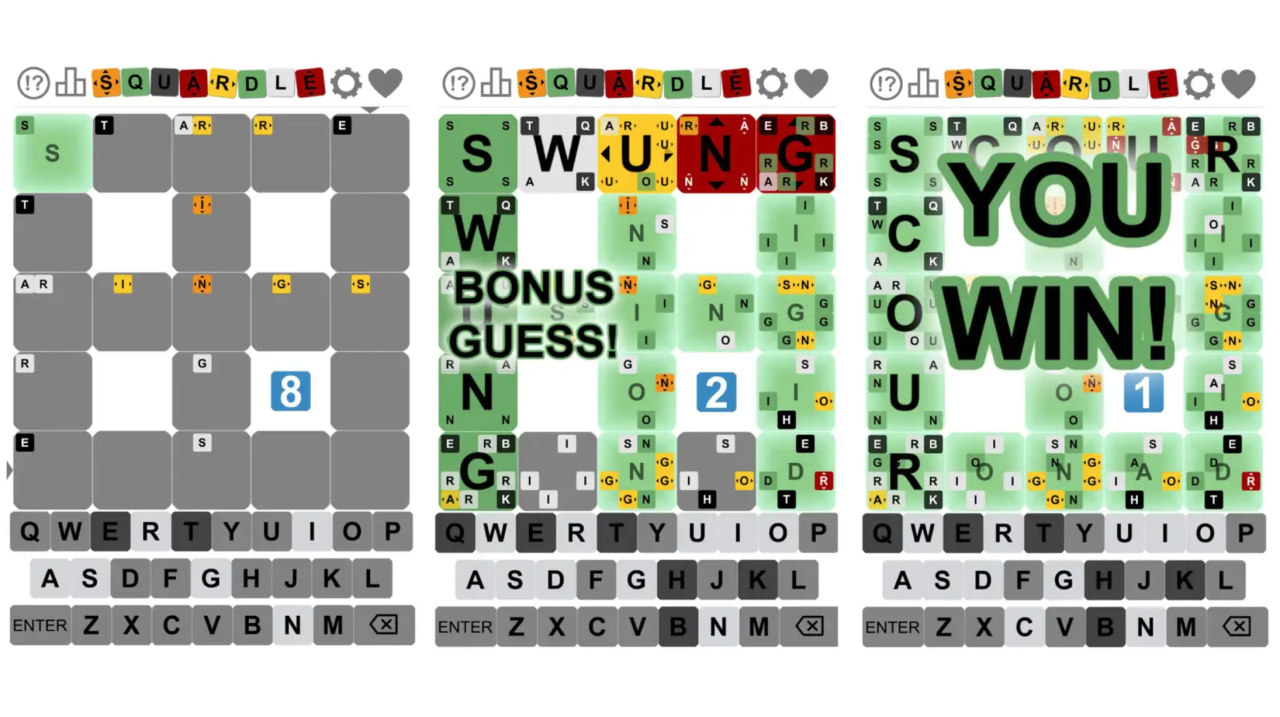
If you thought Waffle was cute, Squardle is its evil twin. It’s another crossword-style guessing game, but this time you have to type all your guesses in. That doesn’t sound so bad, until you start trying to make sense of the hints. Each square contains colour-coded information about how the letter you guessed fits into the words of the puzzle. Like Microsift’s Clippy, something intended to be helpful quickly turns confusing and frustrating. Winning this game requires you to use the those hints without letting their proliferation distract you.
Redactle
One word at a time? Six words at a time? Redactle scoffs at all that. It gives you an entire Wikipedia article with most of the words blacked out, in the style of censored government documents. Your job is to guess words; when you guess correctly, those words are revealed in the article. Solving the puzzle means correctly guessing the title of the article — which could be about anything from a historical figure to a mathematical concept.
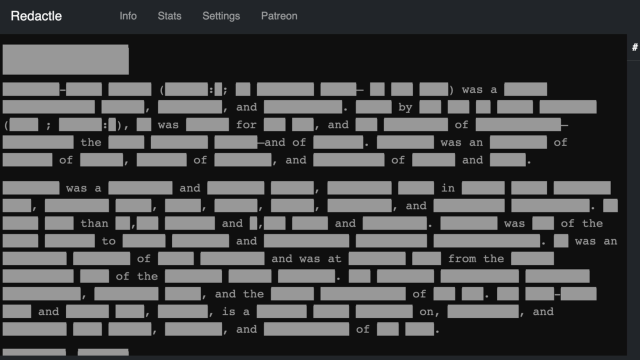
Leave a Reply